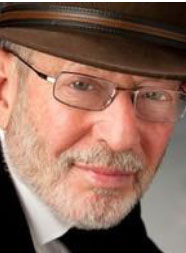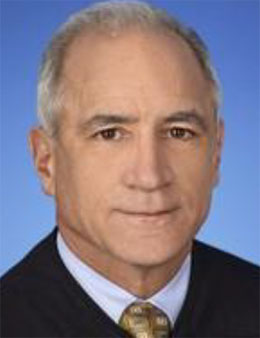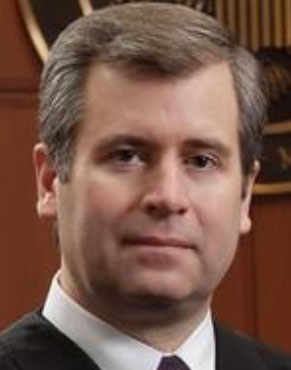Criminal Law
Views From The Bench On Sentencing Representation: Part 2
This article is republished with permission from Law360

By Alan Ellis
In the first article published in this series on March 1, 2016, I shared some do’s and don’ts for lawyers representing clients during sentencing. This information was gathered during interviews conducted with Judge Jed Rakoff of the Southern District of New York and Senior Judge Mark Bennett of the Northern District of Iowa. For this second article in the series, I interviewed Judge Patrick J. Schiltz of the District of Minnesota and Judge Robert N. Scola Jr. of the Southern District of Florida.
Judge Patrick J. Schiltz and Judge Robert N. Scola, Jr. could not have two more dissimilar backgrounds.
Judge Schiltz was editor of the Harvard Law Review and clerked for the late U.S. Supreme Court Justice Antonin Scalia. He helped found the University of St. Thomas School of Law. Judge Schiltz was a George W. Bush appointee in 2006.
President Obama appointed Judge Scola to the district court in 2011. Prior to that, he was a state court judge in Miami. Before that, he was an active criminal defense practitioner serving for one year as the Miami chapter president of the Florida Association of Criminal Defense Lawyers.

Both judges were asked how they determine whether a defendant feels remorseful about his crime. Both answered with their version of “actions speak louder than words.” Judge Scola said, “I’d rather have 50 character witnesses pay $100 each toward the defendant’s restitution than to provide 50 character letters. Making reasonable efforts to pay restitution is one indication of sincere remorse.” He added, “If your client is leasing a car for $900 a month while on bond and pays no restitution, that’s not going to help him.”
Judge Scola further commented that if a defendant is ordered to pay a large amount of restitution, he doesn’t expect that the defendant is going to be able to pay the full amount. “If the loss in the case $1 million, but the defendant only received $10,000 for his participation, he should pay that amount back or offer to do so with arrangements.” Judge Scola gave examples of what he considers real efforts for restitution, saying “If he has equity in a home, he should get a home equity loan. If his family and friends truly love him, they should help him.” In other words, do what you can. On the other hand, he added, “I don’t want to have a defendant offer to pay restitution only if he stays out of jail. No quid pro quo.”
Judge Schiltz shared his thoughts on how a defendant can demonstrate that he is sincere about turning his life around. He recommends your client “[g]o get a job. Work at McDonald’s. Go back to school or get your GED. Do something.”
When asked his opinion about the best thing a lawyer can do when representing a defendant who has committed a particularly reprehensible crime, Judge Schiltz first shared that the hardest cases are those involving white collar “con men.” He then commented, “You need to show me your client is not a con artist at heart; that he is not a psychopath or a sociopath. If there is a mental illness that contributed to the commission of the crime, let me know about it.”

Both judges also shared their pet peeves. For Judge Scola, these include (1) lawyers who do not submit presentence memorandums, those who submit them on the eve of sentencing and those who submit poorly prepared ones; (2) lawyers who give him boilerplate Booker and its progeny citations in a presentence memorandum; (3) lawyers who ask for ridiculously low sentences; (4) lawyers who don’t prep the defendant or character witnesses prior to the hearing; (5) lawyers who don’t interrupt their clients who, during allocution, start digging a hole for themselves; and (6) lawyers who forget that the court is the audience and put on a useless show for their client, family and friends.
So, what makes a positive impression on Judge Scola? “I am very impressed with lawyers who show good legal advocacy in their presentence memorandum, particularly as to disputed guideline issues,” he said. He appreciates lawyers who get him everything he needs well in advance of the hearing, suggesting that if you have five or six good character letters, you should “put them in the sentencing memorandum, quote from them, and attach them as Exhibit. A. Put the rest in another exhibit.”
Judge Schiltz bemoans the quality of lawyering he frequently sees at sentencing. “Practicing criminal law in federal court is largely federal sentencing,” he said, and correctly points out that 97 percent of defendants plead guilty and appear before for sentencing. In 10 years of trying criminal cases, he says the conviction rate before him has been close to 100 percent. With these types of statistics, Judge Schiltz says, “It’s surprising how many otherwise competent attorneys ‘punt’ at the sentencing hearing.” Simply stated, “I don’t get the help I’d like.”
Judge Schiltz says that he picks a range of months before he comes into court with a written explanation in support so the written submission of counsel is very important. “I don’t want 40 pages of regurgitated Booker and 3,553 factors but rather a handful of heart felt letters,” he says. “Six to eight pages would be ideal, but no more than 20.” He strongly added, “Tell me something I don’t know about your client.”
Judge Schiltz recommends that lawyers carefully screen character letters before submitting them. He said that he appreciates learning about a good deed that is not otherwise known about the defendant. He gave an example of “a defendant who, during a heavy snowstorm, shovels the sidewalk of an elderly disabled neighbor.” Judge Schiltz feels that inarticulate character letters that give examples of a defendant’s kindness often come across as more genuine.
The bottom line for both judges is that it is essential to humanize your client as much as possible. Judge Scola says that live witnesses should speak for two minutes at most and share why the defendant is a good husband, brother or son. They should not read what they are saying. “I am looking for the human element,” he comments. He feels that character letters and character witnesses are helpful if they can be truly incisive to whom the person is, why they did what they did and why they are unlikely to do it again. Like Judge Schiltz, Judge Scola is “touched by genuineness.”
Allocution generally makes no difference in Judge Scola’s sentencings. In 5 percent of cases, it might actually hurt a defendant. “On the other hand, I once had a defendant appear in front of me thank me for appointing his CJA lawyer and explained why he felt he was treated fairly by the system. I was impressed by his insight and his appreciation and I gave him a lower sentence than intended.”
In part 1 of this article series, Judge Jed Rakoff said that he doesn’t know any judge who doesn’t appreciate the fact that he has a human being appearing in front of him. Judge Schiltz agrees. “Help me appreciate that the defendant is a human being who will spend years in a cage.” Judge Scola echoed the same sentiment.
Judge Schiltz readily welcomes a lawyer’s recommendation of a sentence, saying that some attorneys have a real “knack” for making well-reasoned, principled and appropriate recommendations. However, he also warned that he will dismiss recommendations that are unreasonably low. He conceded, however, that “in fact, if I go down in court from my written number, it’s not that much.” He further comments that “going from 48 to 44-46 months is typical, and I do this only if I learn something in court that I didn’t know before.”
Interestingly, Judge Scola views his discretion more narrowly than Judge Schiltz, pointing out that he wants to give the lowest possible sentence in accord with the sentencing guidelines, 18 USC §3553 and Eleventh Circuit precedent. “I am very mindful that the Eleventh Circuit requires a valid reason for a variance and also a justifiable reason for the amount of the variance,” he says. “I try to impose a sentence that will not be overturned on appeal.”
Indeed, Judge Scola has never had a sentence overturned on appeal in his four and a half years on the bench. “The first job of a lawyer is to provide me with law on the disputed legal issues that will be upheld by the Eleventh Circuit,” he says.
Both judges welcome evidence of the defendant’s community service, but less so when performed while awaiting sentencing. A promise of future community service has no impact on sentencing. Those, however, who have a history of community service before their arrest, and, better yet, before they knew they were under investigation, receive very favorable consideration.
Judge Schiltz doesn’t like canned psychological/psychiatric reports by professional “hired gun” experts. Also, if he sees that the report is based on inaccuracies about the offense, he says, “I am going to give it little weight.” He says he is less concerned with appeals because, in the Eighth Circuit, it is hard to get reversed, as long as no procedural mistakes are made and the basis for the sentence is adequately explained.
Both judges are very concerned with disparity in sentencing, and want to avoid imposing disparate sentences on defendants who have committed a similar offense with a similar criminal background. Judge Schiltz says that if a lawyer wants to argue that another judge on the bench in the District of Minnesota imposed a particular sentence, it won’t impact him unless the cases are “apples to apples” adding, “the lawyer needs to be as specific as possible in showing me this.” Judge Scola says that while he is not interested in what judges in California and New York do, he is interested in what judges in the Southern District of Florida have done. Again, like Judge Schiltz, he said that he finds it helpful if a lawyer can identify the particular case and state why it is similar to his or her case and why the particular judge did what he did. Both judges indicated that they would welcome statistics on sentences imposed on similar defendants who have committed similar offenses with similar prior records in their district and their circuit and nationwide.
Both judges offered excellent suggestions. They want to know what a defendant will do once they get out of prison. Having a support system is very important, said Judge Schiltz. “A defendant who has support, in my opinion, is at a lower risk of reoffending. I might give a defendant who has good support a shorter term of supervised release than a defendant who doesn’t have much support and may very well reoffend.”
Judge Scola suggests that, in a multidefendant case, if co-defendants have been sentenced earlier than your client, attend that sentencing. “See what I have determined to be their guidelines. Learn how I feel about the case. At times your client’s name will come up. Listen to what I say about him.”
Finally, both judges (and every judge I have interviewed so far) have a problem with child pornography offenders. Judge Schiltz says, “I am post-Booker judge. The guidelines are a benchmark for me. A starting point.” However, he added, “In child pornography cases, they are utterly useless.” In child pornography cases, both Judge Scola and Judge Schiltz make a big distinction between offenders who have merely looked at child pornography versus those who are trolling the Internet for potential victims, offenders who actively distribute or produce it, or who have had contact or tried to have contact with a child. Both judges say that they treat the former far more leniently than the latter, especially on first offenses.
Conclusion
In addition to the four judges that I have interviewed for parts 1 and 2 of this series, I have now interviewed almost a dozen more. Two overall themes have emerged. First, judges want to see that your client has internalized what he has done, what impact it has had upon his life, the lives of his victims, if any, and, significantly, his family and close friends. Second, they find lawyers who regurgitate information they already know to be useless and are put off by it. A common comment is: Tell me something I don’t already know about your client.
—By Alan Ellis, The Law Offices of Alan Ellis
Alan Ellis, a past president of the National Association of Criminal Defense Lawyers, is a criminal defense lawyer with offices in San Francisco and New York. He practices in the areas of federal sentencing and prison matters, and was awarded a Fulbright Senior Specialist Award by the U.S. State Department to conduct lectures in China on American criminal law in the fall of 2007.
The opinions expressed are those of the author(s) and do not necessarily reflect the views of the firm, its clients, or Portfolio Media Inc., or any of its or their respective affiliates. This article is for general information purposes and is not intended to be and should not be taken as legal advice.
All Content © 2003-2016, Portfolio Media, Inc.
